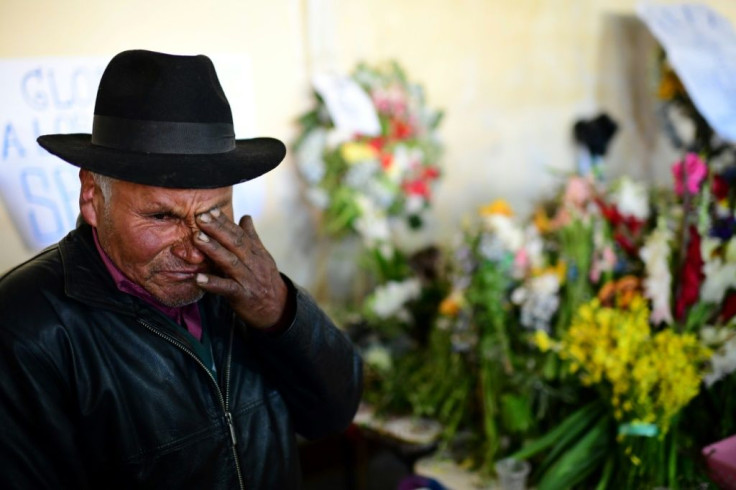Police Break Up Bolivia Funeral Protest As Congress Meets On Elections

Bolivian riot police fired tear gas on Thursday to break up a massive funeral procession that turned into an anti-government demonstration as Congress debated when to hold new elections.
Congress convened as thousands of people marched from El Alto to neighboring La Paz in a funeral procession for five of the eight indigenous protesters killed in a stand-off with the security forces near a key fuel plant on Tuesday.
But police fired tear gas to break up the gathering once the crowd reached La Paz's San Francisco square, near the congress building, forcing them through side streets.
Interim President Jeanine Anez has urged lawmakers to lay the ground for new elections.
Congress must fix a date for new elections, but before that it must agree on the composition of a new seven-member electoral court, after the members of the previous authority were charged with manipulating results.
Deadly clashes broke out Tuesday when security forces lifted a week-old blockade on the Senkata plant near El Alto, amid growing fuel and food shorages in La Paz.
"Justice, justice" chanted the protesters as they bore the simple coffins towards La Paz.

"They riddled us with bullets," said Rufino Copa, a 42-year-old farmer, describing the security force response to demonstrators as "bloodthirsty."
Protesters accuse the security forces of firing indiscriminately at the Senkata demonstrators. The interim government denies responsibility for the deaths.
"We want justice, we don't want this lady to be president," said an indigenous woman, her eight-month-old baby strapped to her back, who did not want to be identified for fear of reprisals.
The killings have deepened divisions between indigenous people loyal to ex-president Evo Morales, who resigned amid allegations of electoral fraud, and Bolivia's mainly city-dwelling middle and upper classes.
Morales, who fled to Mexico after resigning November 10, accused the Bolivian security forces of engaging in "genocide" against his indigenous supporters, and called for action by the international community.
Anez, the 52-year-old former deputy speaker of the Senate, declared herself the country's interim president last week, filling a vacuum left by Morales' departure and the resignations of several ministers.
Since Morales stepped down, his supporters have demonstrated daily in the streets of La Paz and in some provincial cities to demand Anez's departure.
© Copyright AFP 2024. All rights reserved.




















